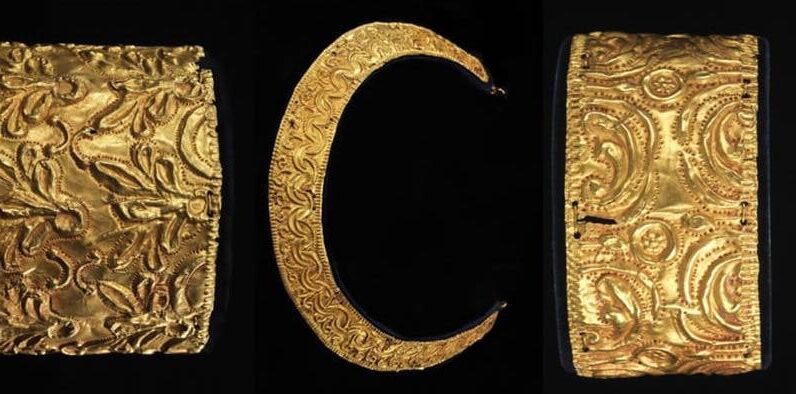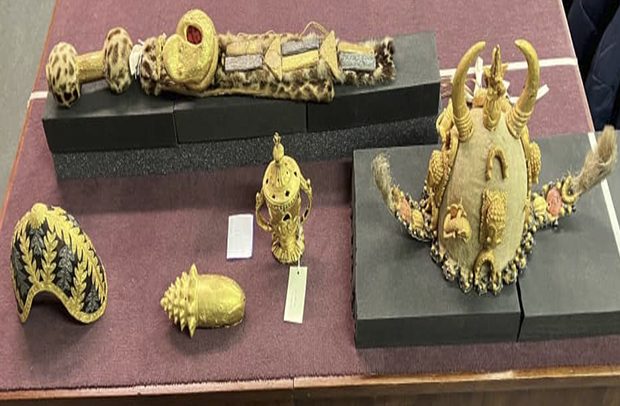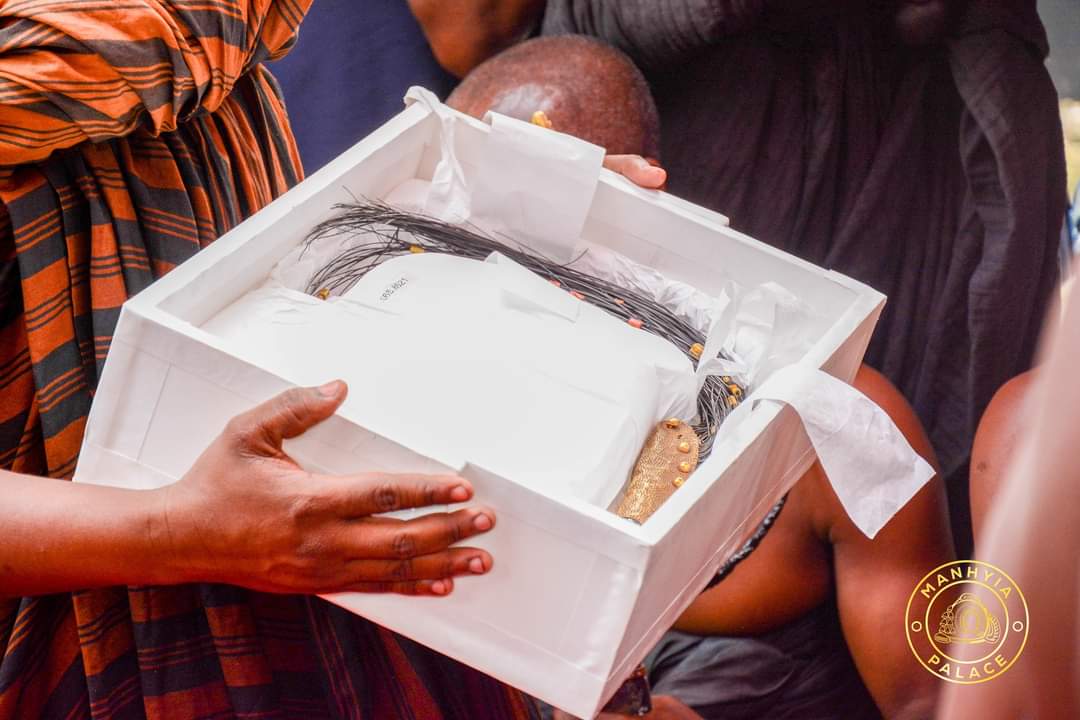
The auction of 40 artefacts taken from the ancient kingdom of Dahomey during a military campaign in the 19th century, and held in a private collection for decades, was cancelled following a dramatic intervention by African activists in the city of Nantes. The objects are set to be returned to Benin.
What started out as a regular sale at the “Salorges enchères” auction house in the northwest city of Nantes turned into a public debate about pros and cons of returning artefacts taken out of Africa during France's colonial era.
While the auctioneers were busy preparing the of 40 artefacts mainly consisting of spears and battle axes from the ancient kingdom of Dahomey, Thomas Bouli, president of Afrique Loire, was working out how best to prevent the sale from going ahead.
“Our starting point was the research phase because we had to come up with the proof…to link them to the specific military campaign code-named Brazza,” explains Bouli.
Catalogue of crime
The publication of the auction catalogue provided that proof because it specified that the objects were acquired by Corporal Mazier. The same corporal who took part in sacking parts of the Dahomey Kingdom during the first Franco-Dahomean war in the 1890s.
Bouli then contacted the French ambassador in Benin to alert him of the auction. The ambassador contacted the culture ministry in Paris that issued a ban on the sale of the 40 artefacts on Thursday 21st March.
The auction house was unaware of the ban and it was slated to go ahead on Saturday 23rd March. Meanwhile Bouli had contacted the local media in Nantes and told them he was planning to stage an intervention. Several journalists turned up at the auction house on the day of the sale.
“The third phase of the intervention involved rallying members of the African diaspora. Because Afrique Loire organizing Africa Week every year we have a wide network,” says Bouli.
Ritual broom
The plan had been to stage a demonstration outside the auction house, but the local authorities were wary of issuing permits to demonstrators “due to disruption caused by Yellow Vest in recent weeks,” explains Bouli.
So Bouli along with other African activists entered the auction house and took seats alongside potential buyers of the objects in questions. But before the auctioneer could begin the bidding process, Bouli approached him with a crutch in one hand and a ritual broom in the other which he waved bringing an end to the auction.
An hour-long debate ensued in which the practicalities of President Emmanuel Macron's directive to returned African artefacts was discussed at length. In November 2018 Macron ordered the return of artefacts from Africa held in public collections to countries with bilateral agreements with France, including Benin, Burkina Faso and Senegal.
“I think it's a diversion. I think (President) Macron did it so that people don't focus on the current exploitation of Africa. Like uranium by Areva,” says David Norden a dealer in African art based in Antwerp, Belgium.
Suply and demand
The ban by the Culture Ministry is the first to be imposed on objects from a private collection. Collectors and dealers of African art in France will be wary for a while.
“Those spears are not particularly important. There are hundreds of thousands of them in circulation,” says Norden. Supply is more than sufficient to feed demand for antiques taken out of Africa during the colonial period for the foreseeable future. But the dramatic events in Nantes is likely to push the sale of objects acquired in a questionable manner underground.






















Facebook
Twitter
Pinterest
Instagram
Google+
YouTube
LinkedIn
RSS